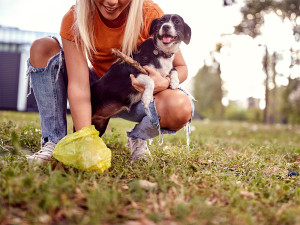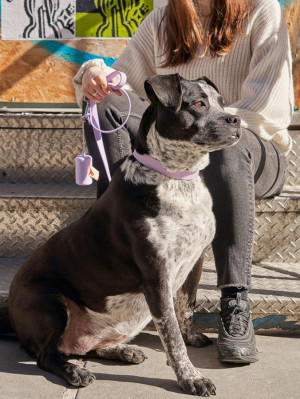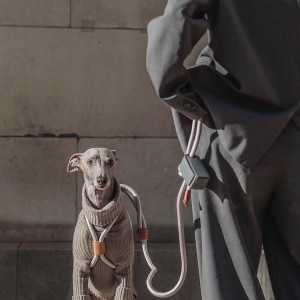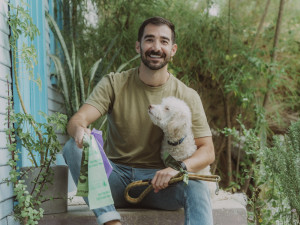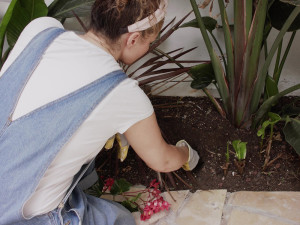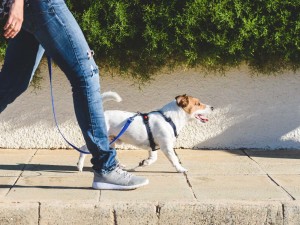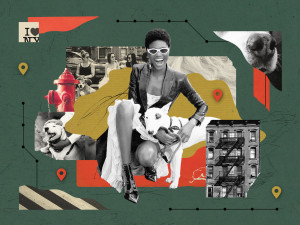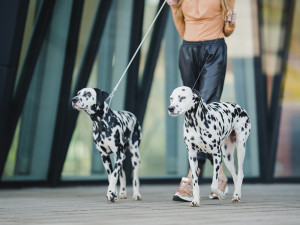An Analysis of New York City’s Dog-Poop Problem
OK, let’s get into the psychology behind New Yorkers who don’t pick up their dogs’ poop (we know it’s not you!).
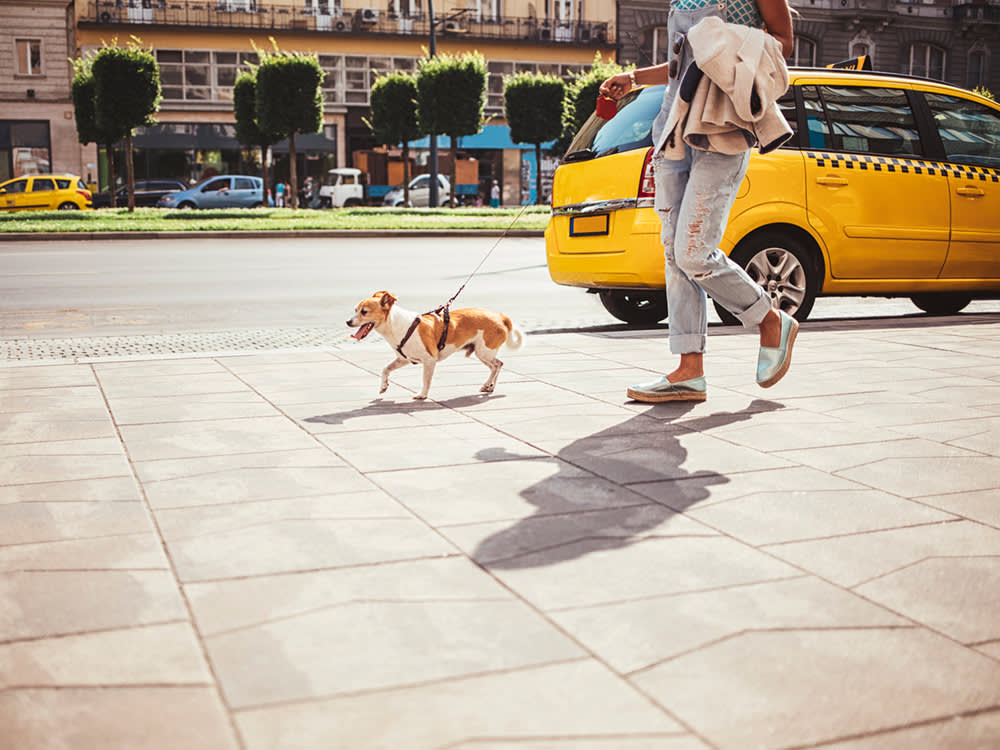
share article

Your pet wants you to read our newsletter. (Then give them a treat.)
The dog poop dance has four steps: Take your dog out, watch your dog poop, pick up your dog’s poop, deposit the bag in a nearby trashcan. Cha-cha-cha. But sometimes — we’ve all seen people do this — the dance goes like this: Take your dog out, watch your dog poop, walk the other way like nothing happened.
Whoa there. Did you forget steps three and four? Did you just bail while your dog’s poop sits there for somebody else to deal with? Really? Too often the answer in New York City is “Yep.” In addition to being really bad for the environmentopens in a new tab, isn’t that illegal? Oh, hell yeah, it is. New Yorkers can be fined up to $250 for not picking up. But cops rarely write that ticket. According to a Gothamistopens in a new tab piece published this spring, only 18 tickets were issued in 2022 for “failure to pick up canine waste.” That’s down from 72 tickets in 2019.
Plus, NYC had a boom in dog population during the pandemic; more than 100,000 dog licenses were issued in 2020, up from roughly 72,000 in 2019. And that’s just the official number. So: lots more dogs, lots more dog poop, few tickets — and guess who loves dog poop? Rats. Un-picked-up poop is a problem, people. So, the poop czars at the New York City Department of Sanitation (DSNY) have launched a media campaignopens in a new tab to combat what they call “poopetrators.”
“Keeping the city clean is a priority for the Department, and we implore our fellow New Yorkers to do their parts, too, and that includes picking up after your pooch. It’s a moral responsibility — and a legal one,” Belinda Mager of the DSNY tells The Wildest. “If we see you not picking up the poop, you are going to get a violation.”
Not picking up poop is illegal, rude, and, well, gross, so why does this keep happening in my town? The Wildest wanted some answers, so we spoke with someone who has some insight into the minds of New Yorkers, NYC psychologist and author, Dr. Mark Borg, Jropens in a new tab.
If you see someone not picking up after their dog, what is your first thought?
I may very well be exactly the right person to answer this question because I am the author of the psychoanalytically-based self-help book titled, Don’t Be A Dick: Change Yourself, Change Your Worldopens in a new tab. And, honestly, that is my very first thought when I see someone not picking up after their dog: Don’t be a dick. It is quickly followed up by the next thought which is: Now, I am feeling compelled to be one (a dick). Here’s what we New Yorkers know: Policing other people’s — and their dog’s — behavior sucks.
Not cleaning up after your dog is among one of the most sure-fire ways to invite people to show you their worst reactions (right up there with cutting in line). The mind’s job is to protect us from things we don’t want to know — cannot tolerate — about ourselves. So, it’s really tricky getting [mad] at other people’s bad behavior, because, first of all, they have to recognize something none-too-attractive about themselves: I am willing to risk being hated by others to get the attention that is missing from my life. “Attention-seeker,” in adolescence and, especially, adulthood is certainly not a compliment.
What about entitlement? Do some people think somebody else will poop wrangle for them?
Entitlement is one of my favorite words as a shrink. Oddly, I find myself encouraging my patients to think about entitlement as a way of claiming things that they need and want from the social environment — that is, other people, in their lives. I understand the use of the word “entitlement” as an indication of someone grabbing more than their fair share of what (attention) the world (other people) has to offer. I don’t believe that the non-dog-poop-picker-uppers believe anyone else is going to wrangle poop for them, but they may feel entitled to a higher level of attention and leniency, tolerance, and compassion.
Is it just social anxiety about having to handle poop in public?
Unlikely. Social anxiety is more about our fears of not fitting in, not being good enough, being embarrassed or humiliated in public. Therefore, it is more likely that a person with social anxiety disorder would be quite vigilant about cleaning up their dog’s poop.
What is it that you’ve observed about New Yorkers that make them just not want to pick up dog poop?
Hey, it’s a lonely place here in New York; even with eight million neighbors, we’re probably all needing a lot more attention than we receive.
Is it personal or cultural or both?
In New York, the personal is cultural, and the cultural is personal. In New York City, many of us unofficially patrol other people’s social infractions: people riding bicycles against traffic in the bike lane, people walking against the flow of foot traffic on the sidewalk, etc. This might make us both super sensitive to other people’s social infractions and simultaneously susceptible to projecting those qualities that we can’t accept in ourselves onto other people and their behavior. Projection is that psychological defense mechanism where I see what I hate in myself in you (my neighbor, for example).
This cultural-is-personal dynamic is probably true everywhere. But, here in New York, we feel it more acutely because we’re bumping into each other all the time, literally stepping into each other and each other’s dog’s shit.
Are there pressures specific to New York City that contribute to this behavior?
The fact that we all live in small apartments means that it is a status symbol to enact behaviors suggestive of us having space (say, more space than we do, or could, possess)...So, it is likely that having a dog who is defecating wherever it pleases, and, in so doing, claims public space for itself, can operate as a kind of proxy for the dog owner’s claim of more space than he or she could possibly possess.
If you know someone who repeatedly fails to pick up after their dog, is there something you can say to them? Or is it something they should work out for themselves?
Of course, the human in me wants more than anything to say, “Dude, don’t be a dick!” But then I remember that that is exactly what I say to myself when I’m acting like a jerk to my fellow New Yorkers! I think there are things that we can say to each other when we notice each other involving ourselves in self-destructive behavior. And leaving our dogs’ poop on the sidewalk is self-destructive because it invites mistreatment from our neighbors. But it’s really difficult to do so in a way that doesn’t feel like an attack.
And we know that these “interventions” (“clean up yer fuggin’ dog!”) are usually met with a counterattack (“f*ck you!”). Instead, maybe we can ask, “What’s the dog-poop-leaver actually calling for?” Might just be something that we were missing from our own life (attention, tolerance, forgiveness)? We could all use more love, care, and compassion — even when we are asking for it in the most awkward of all possible ways: poop on the NYC sidewalks.
Or, and this is The Wildest’s interjection here, you can just offer someone a poop bag if you have one on you. Either way, you’re sharing the love.
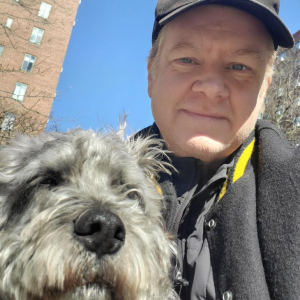
T. Kent Jones
T. Kent Jones is a writer and broadcaster whose work has been featured on The Daily Show on Comedy Central, The Rachel Maddow Show on MSNBC, Morning Sedition with Marc Maron on Air America Radio and in many publications and comedy websites. He lives in New York City with his wife, Kelly, and their rescue Schnoodle, Pops, who suffers much foolishness with stoic forebearance.
Related articles
![eco-friendly pet parent pets down inside of indoor garden]() opens in a new tab
opens in a new tabHow to Be an Eco-Friendly Pet Parent
Reducing your paw print can seem daunting. Consider these simple tips.
![Dog walker walking with her pet on leash on the sidewalk]() opens in a new tab
opens in a new tab10 Tips You’ll Definitely Want to Follow When You Walk Your Dog
From the safest gear to training recs.
![collage of NYC dog friendly places]() opens in a new tab
opens in a new tabThe Dog-Friendly New York City Guide For Your Favorite City Slicker
Whether you’re brunching, barhopping, or looking for a place to crash in NYC, your dog deserves to come with you. Here are all the spots ready with bowls of water, treats, ear scratches, and open-door policies for your best pal.
![Owner walking two Dalmatians downtown]() opens in a new tab
opens in a new tabHow To Stop a Dog From Pulling on the Leash
Dog trainer Karen B. London promises you’re not doomed to be pulled down the street forever.
